Hello, fellow Labrador lovers! Today, we’re tackling a topic close to the heart of every Lab owner: What Health Issues Are Common in Labrador Retrievers?
Labradors are known for their loyalty, friendliness, and as excellent family pets, but they also have certain health predispositions that we should be aware of. Let’s explore these issues together, armed with knowledge and a dose of preventive care. 🌟

Here’s an informative table summarizing the key points from the blog post about common health issues in Labrador Retrievers:
| Health Issue | Description | Prevention/Treatment |
|---|---|---|
| 🩺 Hip Dysplasia | Hereditary condition causing joint mismatch. | Weight management, regular vet check-ups, balanced diet, proper exercise. |
| 🐕🦺 Elbow Dysplasia | Developmental disorder affecting the elbow joint. | Weight management, surgery for severe cases, regular veterinary screenings. |
| 👁 Progressive Retinal Atrophy (PRA) | Genetic disorder leading to blindness. | DNA testing for breeding, adapting environment for visually impaired dogs. |
| 🦴 Osteochondritis Dissecans (OCD) | Abnormal cartilage growth in joints. | Surgery to remove damaged cartilage, feeding large breed-specific diet. |
| 🍖 Obesity | Excess weight exacerbating health problems. | Strict diet, regular exercise, tailored nutrition and exercise plan by a vet. |
| 🧬 Exercise-Induced Collapse (EIC) | Genetic condition causing collapse after intense exercise. | Moderate exercise intensity, genetic testing to identify carriers. |
| 🦠 Infectious Diseases | Susceptible to diseases like parvovirus, rabies, Lyme disease. | Regular vaccinations, flea and tick prevention. |
| 🦷 Dental Health | Common in Labradors, leading to serious health issues. | Regular dental check-ups and cleanings, at-home care like brushing and dental chews. |
| 🫀 Heart Disease | Prone to various heart diseases. | Early detection, medication, dietary changes, surgery in some cases. |
| 🧠 Epilepsy | Neurological condition causing seizures. | Medications to control seizures, monitoring and recording seizure activity. |
| 🏥 Cancer | Certain types more prevalent in Labradors. | Early detection, surgery, chemotherapy, radiation. |
| 🧪 Thyroid Issues | Hypothyroidism leading to weight gain, lethargy. | Blood tests for diagnosis, medication to manage the condition. |
| 🌬️ Allergies | Manifest as skin irritations, digestive, or respiratory problems. | Avoid allergens, special diets, medications, environmental changes. |
| 🦮 Ear Infections | Prone due to floppy ears. | Regular cleaning and monitoring, veterinary care for infections. |
| 📚 Conclusion: A Proactive Approach to Health | Emphasis on regular veterinary care, healthy lifestyle, and attention to signs of illness. | Regular check-ups, awareness, and preventive care. |
This table serves as a quick reference to the common health issues faced by Labrador Retrievers, along with tips on prevention and treatment options. Keeping informed and proactive about your Labrador’s health can lead to a fulfilling and joyful life together.
🩺 Hip Dysplasia
Hip dysplasia is a hereditary condition that’s unfortunately common in Labrador Retrievers.
It occurs when the ball and socket joint of the hips don’t properly meet, leading to pain, arthritis, and mobility issues.
Early detection through regular vet check-ups and maintaining a healthy weight can help manage this condition.
A balanced diet and proper exercise are crucial for preventing excessive stress on the joints.
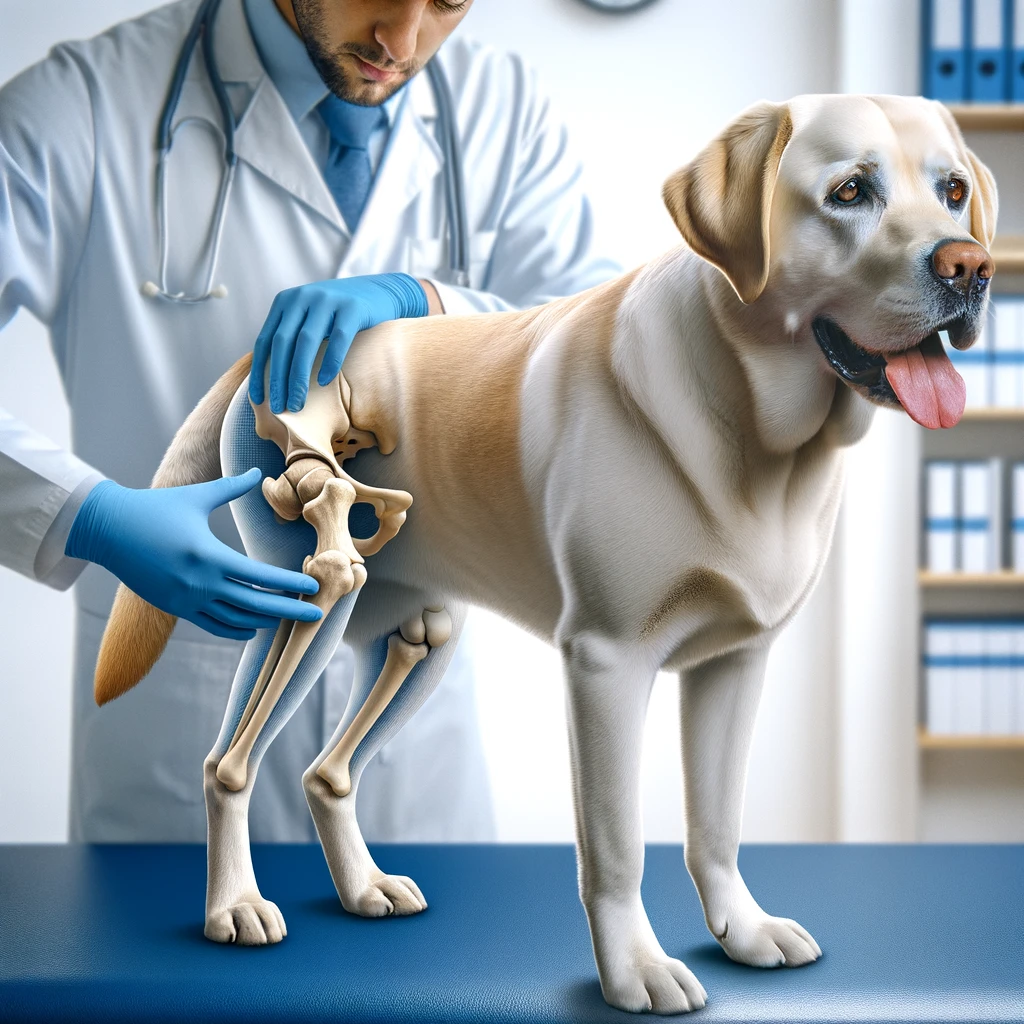
🐕🦺 Elbow Dysplasia
Similar to hip dysplasia, elbow dysplasia is a developmental disorder affecting the elbow joint, leading to lameness and arthritis.
It’s often caused by growth abnormalities, and affected dogs might show signs of discomfort or reluctance to play.
Treatment options vary from weight management to surgery, depending on the severity.
Preventive measures include regular veterinary screenings and providing joint supplements as recommended by your vet.
👁 Progressive Retinal Atrophy (PRA)
PRA is a genetic eye disorder that leads to the gradual deterioration of the retina, eventually resulting in blindness.
There’s currently no cure for PRA, but DNA testing can identify carriers or affected dogs.
Responsible breeding practices are essential to reduce the prevalence of this condition.
Owners can adapt their homes to help their visually impaired Labradors live full and happy lives.
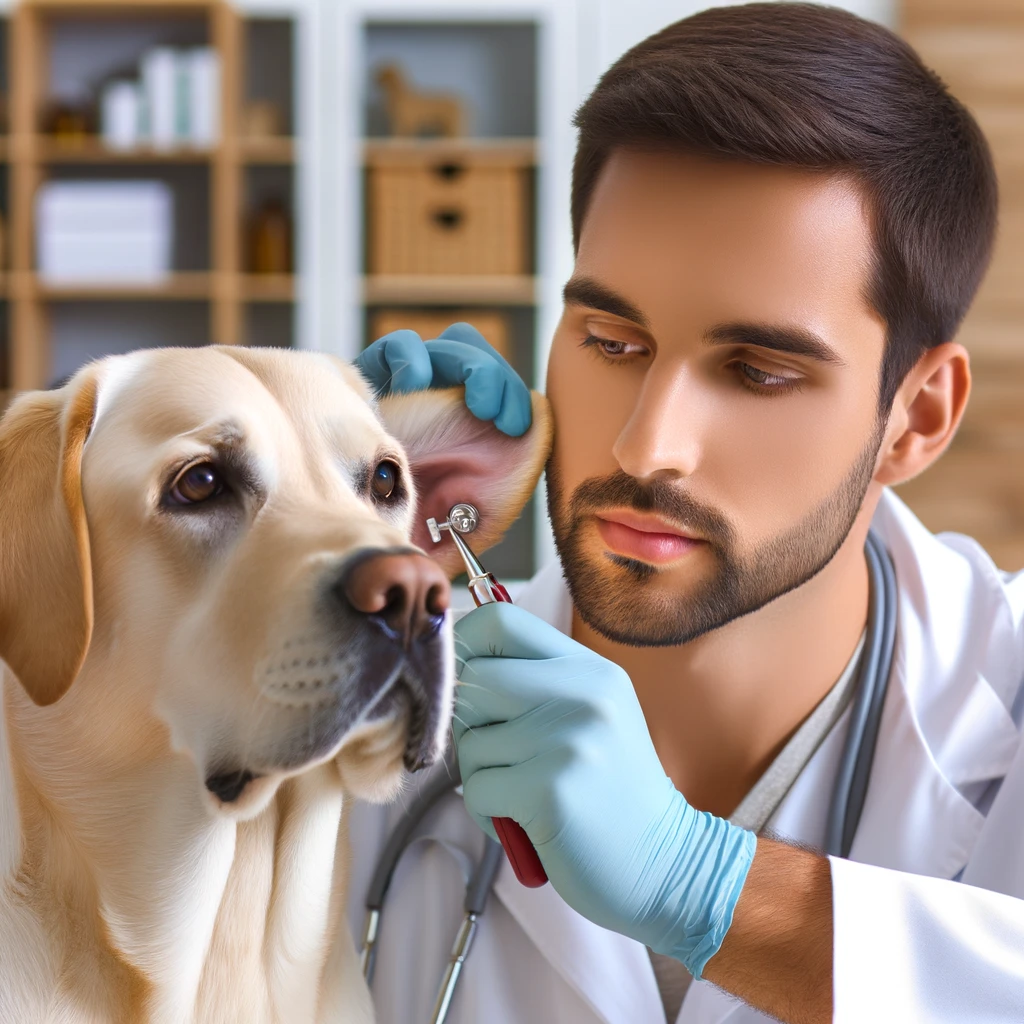
🦴 Osteochondritis Dissecans (OCD)
OCD is an orthopedic condition where abnormal cartilage growth on the joints leads to stiffness and pain.
It’s thought to be caused by rapid growth in large breed dogs, including Labradors.
Treatment often involves surgery to remove the damaged cartilage and alleviate pain.
Feeding puppies a diet formulated for large breeds can help regulate their growth rate.
🍖 Obesity
Obesity is a significant health concern for Labradors, as they are known to have voracious appetites.
Excess weight can exacerbate joint problems, diabetes, and heart disease.
A strict diet and regular exercise regime are key to keeping your Labrador at a healthy weight.
Consulting with a vet to devise a tailored nutrition and exercise plan is highly recommended.
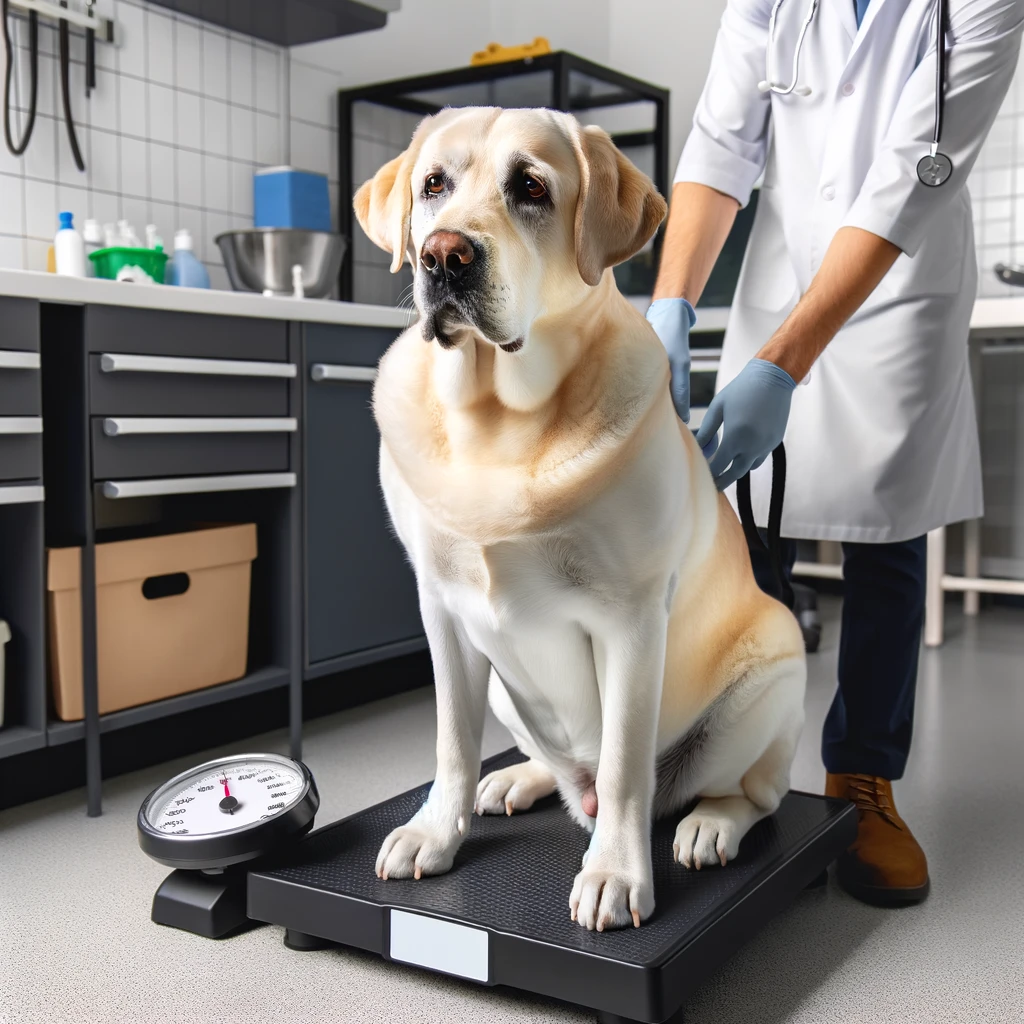
🧬 Exercise-Induced Collapse (EIC)
EIC is a genetic condition that causes affected dogs to collapse after periods of intense exercise.
Symptoms often appear in young adult dogs and can be managed by moderating exercise intensity.
Genetic testing is available to identify carriers of the condition.
Understanding your dog’s limits and providing a safe environment for exercise is crucial.

🦠 Infectious Diseases
Labradors, like all dogs, are susceptible to a range of infectious diseases, including parvovirus, rabies, and Lyme disease.
Vaccinations play a critical role in preventing these diseases.
A regular vaccination schedule, as recommended by your veterinarian, is essential for keeping your Labrador healthy.
Additionally, using flea and tick prevention and keeping your pet away from known areas of tick infestation can help prevent Lyme disease.
🦷 Dental Health
Dental disease is common in Labradors and can lead to serious health issues if not addressed.
Regular dental check-ups and cleanings are essential for maintaining your Labrador’s oral health.
At-home care, including brushing your dog’s teeth and providing dental chews, can also help reduce plaque buildup.
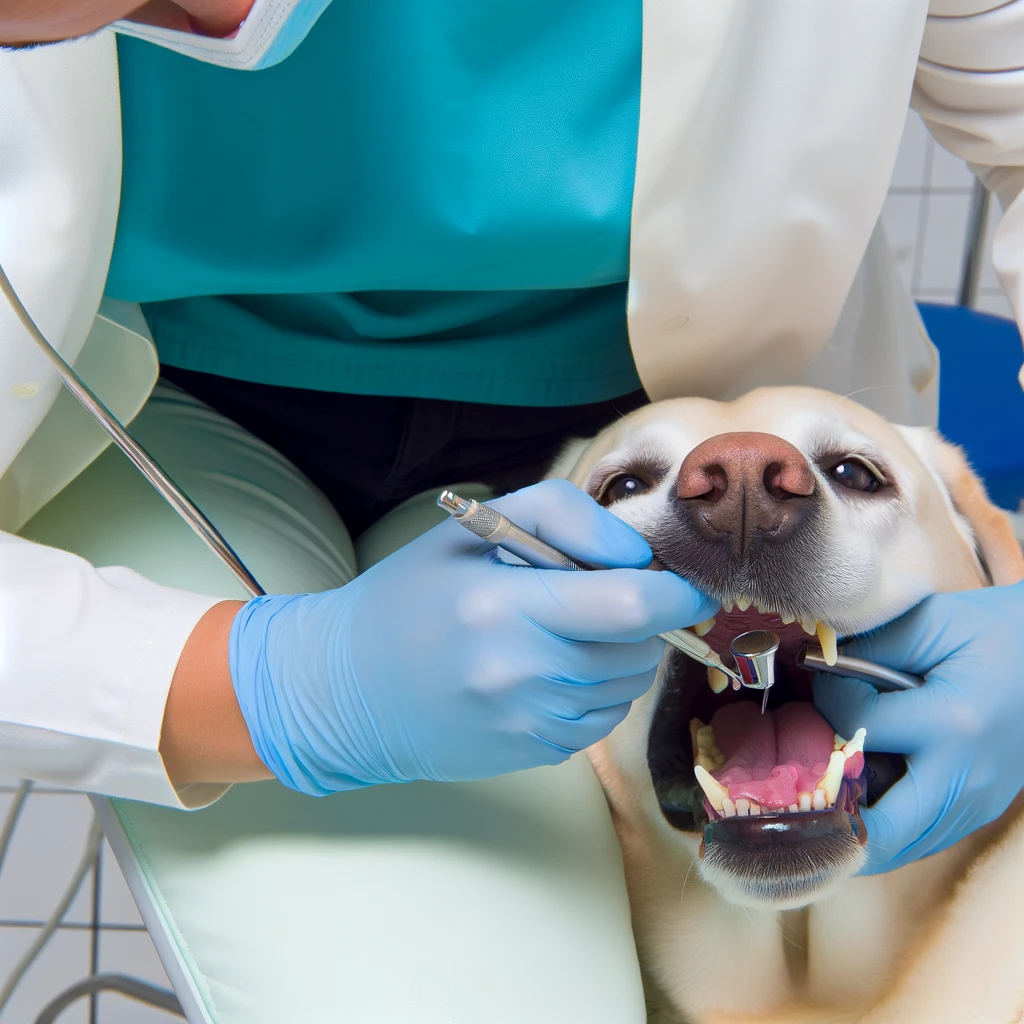
🫀 Heart Disease
Labradors can be prone to various forms of heart disease, including tricuspid valve dysplasia and myocardial diseases.
Early detection through regular veterinary check-ups can significantly improve the prognosis for dogs with heart conditions.
Treatment may include medication, dietary changes, and in some cases, surgery.
Maintaining a healthy lifestyle with regular exercise and a balanced diet is key to prevention.
🧠 Epilepsy
Epilepsy is a neurological condition that can cause seizures in affected Labradors.
While the cause of epilepsy can sometimes be unknown, treatment options include medications to control seizures.
A diagnosis of epilepsy doesn’t mean a poor quality of life for your dog, but it does require management in partnership with your veterinarian.
Observing and recording seizure activity can be incredibly helpful for ongoing treatment plans.
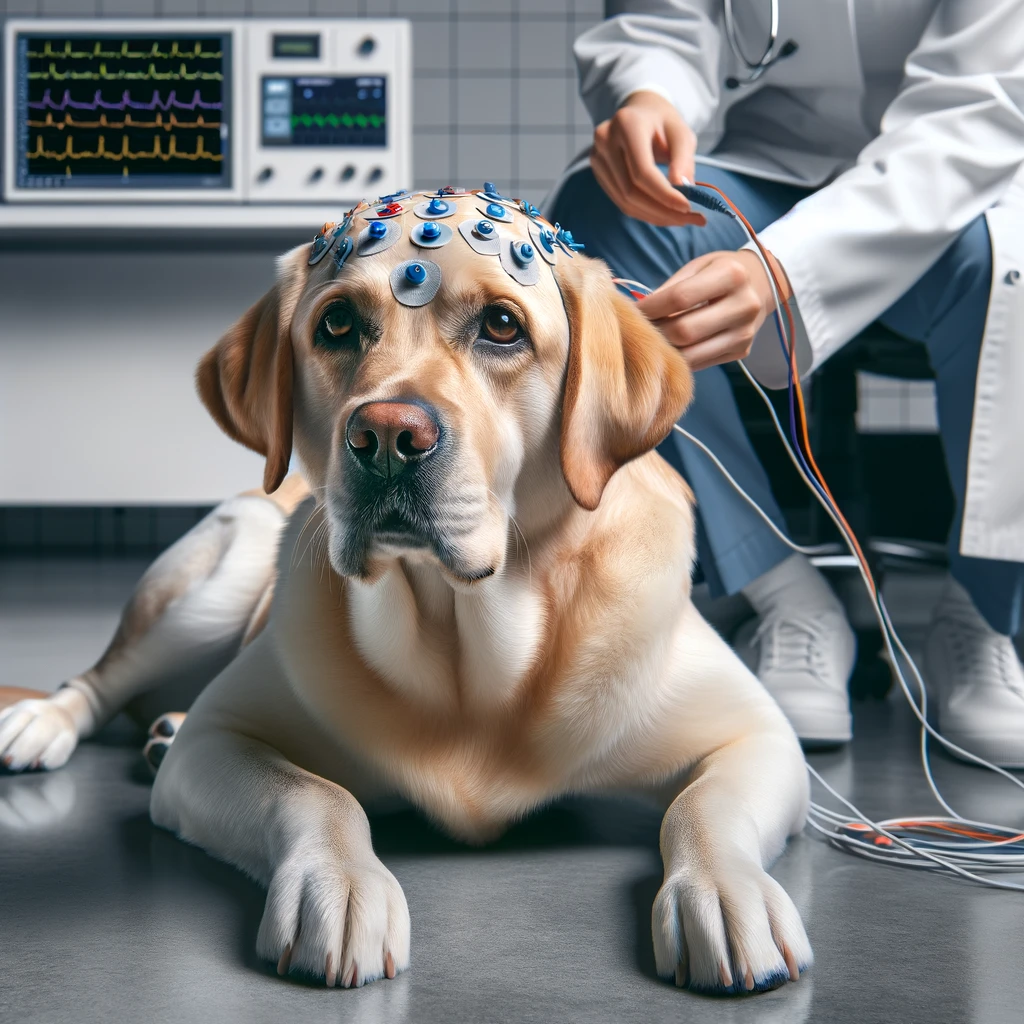
🏥 Cancer
Sadly, Labradors are not immune to cancer, with certain types being more prevalent in the breed.
Early detection through regular vet visits increases the chances of successful treatment.
Treatment options vary and may include surgery, chemotherapy, and radiation.
Supporting your Labrador through treatment involves providing a comfortable living environment and following your vet’s recommendations closely.
🧪 Thyroid Issues
Labradors can suffer from hypothyroidism, where the thyroid gland doesn’t produce enough hormones, leading to weight gain, lethargy, and coat problems.
A simple blood test can diagnose this condition, and it’s typically manageable with medication.
Regular monitoring and adjustments to medication can help manage this condition effectively.
🌬️ Allergies
Allergies are quite common in Labradors, manifesting as skin irritations, digestive issues, or respiratory problems.
Identifying and avoiding allergens is key to managing allergies.
Treatments may include special diets, medications, and environmental changes to reduce exposure to allergens.
Consulting with a veterinary dermatologist can provide targeted treatment options.
🦮 Ear Infections
Due to their floppy ears, Labradors are prone to ear infections, which can be painful and lead to hearing loss if untreated.
Regular cleaning and monitoring of your Labrador’s ears are crucial for prevention.
If you notice signs of an ear infection, such as odor, discharge, or excessive scratching, seek veterinary care immediately.
📚 Conclusion: What Health Issues Are Common in Labrador Retrievers?
While Labradors may be predisposed to certain health issues, a proactive approach to their health can lead to a long, happy life together.
Regular veterinary check-ups, a healthy lifestyle, and prompt attention to any signs of illness are key.
Remember, your Labrador relies on you for their well-being, and with love and care, you can both enjoy many wonderful years together.
For more information on Labrador health and care, reputable sites like the American Kennel Club (AKC) and The Labrador Site (The Labrador Site) offer a wealth of resources.
I hope this guide helps you understand the common health issues in Labrador Retrievers and provides you with the knowledge to care for your furry friend effectively. Remember, awareness and prevention go hand in hand when it comes to the health of our beloved pets. 🐕💖
